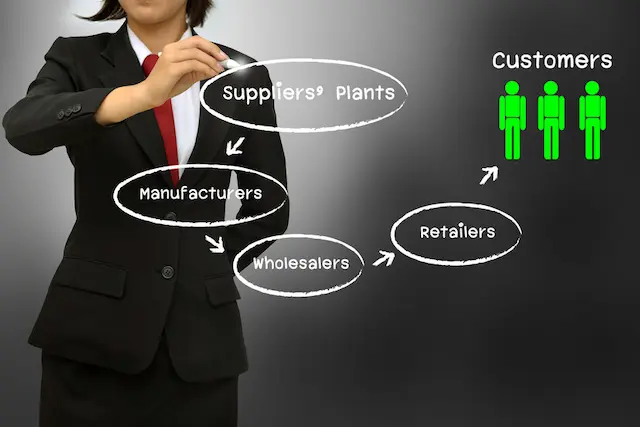When it comes to international trade, countries often need to protect their local businesses and industries from unfair competition. Two key tools used for this purpose are Anti-Dumping (AD) duties and Countervailing (CV) duties. These are special types of taxes placed on certain imported goods to ensure that foreign companies don’t harm domestic industries by selling their products at unfairly low prices. In this blog, we will break down what these duties are, why they are important, and how they differ from each other—all in very simple language.
What Are Anti-Dumping and Countervailing Duties?
To understand Anti-Dumping and Countervailing duties, we first need to know what “dumping” and “subsidizing” mean in the context of international trade.
- Dumping: This happens when a company from one country sells its products in another country at a price that is lower than what it charges in its home country. This can hurt businesses in the importing country because they can’t compete with such low prices. For example, imagine a shoe company in Country A sells shoes for $50 at home but exports them to Country B for only $30. The shoe manufacturers in Country B would find it hard to sell their shoes for $50 when customers can buy imported shoes for just $30.
- Subsidizing: This occurs when a government gives financial help (like grants, tax breaks, or cheap loans) to its local companies to make their products cheaper to produce. When these subsidized products are exported, they can be sold at a lower price, making it hard for companies in the importing country to compete.
Anti-Dumping duties are tariffs or taxes imposed by a country on imported goods that are being sold below their normal value (the price in the exporter’s home market). These duties aim to protect local industries from being undercut by unfairly low prices.
Countervailing duties, on the other hand, are taxes imposed on imported goods that have been subsidized by the exporting country’s government. These duties are meant to counter the advantage gained by the foreign company due to these subsidies and to level the playing field for local businesses.
Also Read: Understanding Anti-Dumping Duties: US Laws, Measures, and Real-Life Examples
Why Are Anti-Dumping and Countervailing Duties Important?
Both Anti-Dumping and Countervailing duties play a crucial role in maintaining fair competition in the global market. Without these duties, domestic industries could be severely damaged by unfair competition from foreign companies, leading to job losses, factory closures, and overall harm to the economy.
- Anti-Dumping duties protect local businesses from foreign companies that try to flood the market with cheap products, making it difficult for domestic companies to survive. By imposing these duties, the government helps ensure that local businesses can compete on an equal footing.
- Countervailing duties protect local industries from foreign companies that receive unfair advantages from their governments. These subsidies allow foreign companies to sell their products at lower prices, which can harm domestic producers who do not receive similar support from their government.
How Are Anti-Dumping and Countervailing Duties Established?
The process of establishing Anti-Dumping and Countervailing duties involves several steps and usually requires an investigation to ensure that the duties are justified.
- Filing a Complaint: Local businesses or industries that believe they are being harmed by unfair competition from foreign companies can file a complaint with their government. This complaint should include details about the imported goods, the prices at which they are being sold, and how they are harming the local market.
- Investigation: Once a complaint is filed, government authorities like the U.S. Department of Commerce and the U.S. International Trade Commission (USITC) will investigate. The investigation looks into whether the foreign company is indeed dumping its products or benefiting from subsidies.
- Decision: If the investigation finds that dumping or subsidizing is occurring and is harming the local industry, the government will impose Anti-Dumping or Countervailing duties on the imported goods. These duties are calculated based on the difference between the normal value (home market price) and the export price for Anti-Dumping duties, or the value of the subsidy for Countervailing duties.
Who Conducts the Investigations for These Duties?
In the United States, two main bodies conduct investigations into dumping and subsidies: the U.S. Department of Commerce and the U.S. International Trade Commission (USITC).
- The U.S. Department of Commerce investigates whether dumping or subsidizing is happening and calculates the amount of duty needed to offset the unfair pricing or subsidy.
- The USITC examines whether the dumping or subsidies are causing material injury or threatening to cause injury to the local industry. “Material injury” means significant harm to the industry, such as loss of sales, reduced profits, or job losses.
If both bodies agree that dumping or subsidizing is occurring and harming the local industry, they will impose the appropriate duties.
Examples of Products That May Face Anti-Dumping or Countervailing Duties
A wide range of products can be subject to Anti-Dumping or Countervailing duties. Some examples include:
- Steel Products: Often, steel products are sold at lower prices in foreign markets, which can hurt domestic steel producers. Both Anti-Dumping and Countervailing duties can be applied to protect local industries.
- Agricultural Products: Items like milk, sugar, and certain types of crops may be subsidized by foreign governments, making them cheaper when exported. Countervailing duties help protect local farmers from this unfair competition.
- Consumer Goods: Everyday items such as glass containers, wooden furniture, and plastic bags may also be subject to these duties if they are sold at unfairly low prices in foreign markets.
Key Differences Between Anti-Dumping and Countervailing Duties
While both Anti-Dumping and Countervailing duties aim to protect local industries from unfair competition, they differ in their purpose and how they are applied:
- Reason for Imposition:
- Anti-Dumping duties are imposed when a foreign company sells products in the domestic market at prices lower than their normal value (price in the home country).
- Countervailing duties are imposed when a foreign government provides subsidies to its industries, allowing them to export products at unfairly low prices.
- Level of Application:
- Anti-Dumping duties are generally applied at the company level. This means that only the specific company found to be dumping goods will be subject to these duties.
- Countervailing duties are usually applied at the country level, affecting all companies from that country that benefit from the subsidies.
- Calculation of Duties:
- The amount of Anti-Dumping duty is based on the margin of dumping—the difference between the normal value and the export price.
- The amount of Countervailing duty is based on the value of the subsidy provided by the foreign government.
Also Read: Difference Between Anti-Dumping & Countervailing Duties
Conclusion
In summary, both Anti-Dumping and Countervailing duties are important tools used by governments to protect their local industries from unfair competition. While they serve a similar purpose, they are applied in different situations—Anti-Dumping duties to counteract unfairly low prices due to dumping, and Countervailing duties to offset the advantages of foreign government subsidies. Understanding these differences helps in appreciating how international trade regulations work to ensure fair competition and protect domestic markets.




